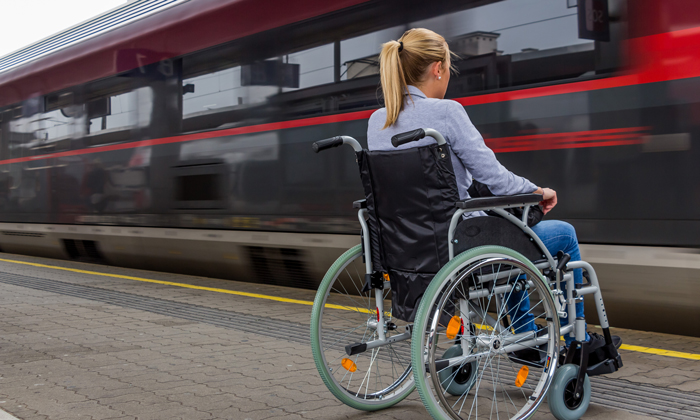The future of accessible travel: the EuTravel Project perspective
- Like
- Digg
- Del
- Tumblr
- VKontakte
- Buffer
- Love This
- Odnoklassniki
- Meneame
- Blogger
- Amazon
- Yahoo Mail
- Gmail
- AOL
- Newsvine
- HackerNews
- Evernote
- MySpace
- Mail.ru
- Viadeo
- Line
- Comments
- Yummly
- SMS
- Viber
- Telegram
- Subscribe
- Skype
- Facebook Messenger
- Kakao
- LiveJournal
- Yammer
- Edgar
- Fintel
- Mix
- Instapaper
- Copy Link
Posted: 27 September 2017 | Yash Chadha (Director of EU Projects) | No comments yet
Yash Chadha, Director of EU Projects discusses the need for accessible transport for everyone and how it, along with its partners, are aiming to make accessible, multimodal, door-to-door transport a reality…


When we started the EuTravel Research EU-funded project in 2015, our prime objective was to ensure people could book complete door-to-door transport routes via multiple modes of transport, including air, rail, coach and ferry, to and from all countries within the EU, via a single platform.
What is the future of accessible travel?
We knew from the start that for this project to benefit everyone – young, old, families, disabled people, EU citizens and international visitors alike – accessibility was key. ‘Access’, we interpreted, meant access not only to the right facilities and infrastructure to suit individual needs but also access to the right information, so all travellers could plan their journeys with ease.
In considering all of these elements, we realised something important: that you cannot think about the future of travel without thinking about accessibility – that accessibility is, in many ways, the future of travel.
For many, accessibility is still considered to be a niche issue, and this is simply not true. According to the European Commission, around 80 million people consider themselves to have a disability in the EU – more than 10% of the total population and this figure is expected to grow to 120 million by 2020 (as predicted by the disability stats from the EU Commission).
Add to this a significant proportion of the population who may not consider themselves disabled but could still have a mobility issue, as well as shifting demographics which mean we also have an ageing population, and these figures are only going to grow.
As transport providers and industry members are all working towards making our society more mobile, it’s our duty to ensure this major community is provided for and offered flexibility in travel options.
The importance of partnerships
At EuTravel Project our role is exactly that. We are working with consortium partners, providing advice on accessibility, towards building a resource which will enable anyone to plan a ‘multimodal’ journey from door-to-door according to their own criteria, keeping one eye on EU policy and existing legal frameworks, in particular in relation to consumers. Our vision is for travel services to become open to everyone, in line with EU directives, and accessibility is at the heart of this.
The future as we see it will enable all disabled people to plan accessible journeys from door-to-door, rather than having to check with each individual provider if their service is accessible.
As you might expect, this is not a simple proposition. Disability can take many forms, and even where it is mobility that is affected, people may use mobility aids, manual wheelchairs or heavier, bulkier power chairs, all of which need to be accounted by travel service providers.
Accomable
Accomable contributes to EuTravel on a consultancy basis, on the needs of a very important user group, not properly catered for at present across Europe. Accomable is a pioneering platform which helps people with any mobility issues find and book accessible accommodation. Led by a disabled CEO, Srin Madipalli, Accomable will use its expertise in adapted travel to advise on accessibility, and provide insight on how future travel service solutions may fully cater for anyone with a mobility issue both in and outside of the EU. The research project findings will be reported back to the Commission through the research deliverables.
With Accomable, we will also engage directly with the userbase. Our primary tools will be a questionnaire, which goes out to the userbase, and a smaller, more focused workshop, in which we will investigate what issues disabled travellers currently face on public transport, what type of information they need, and what changes they would like to see.
The phenomenal rate of growth in technology means that these changes can be incorporated in future travel services.
We are hoping that in offering the information, there will be a ‘knock on’ effect, and providers will be encouraged to re-evaluate their adapted facilities for disabled people and all travellers. Part of our role is to influence travel industry players to offer an easy and cost-effective way to deliver their services to meet the needs of all people.
In doing so, together we’ll make the future more mobile than ever before.
Related topics
Passenger Accessibility







